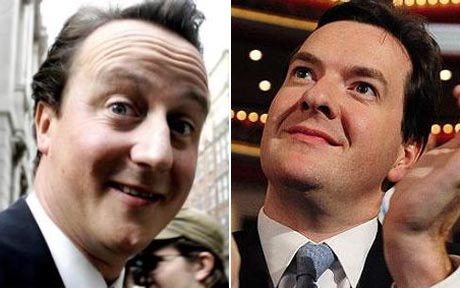
..
They say a picture tells a thousand words. And the image last month of David Cameron at Prime Minister’s Questions – trying to deny his government was out of touch while surrounded by an all-male frontbench – said it all. The lack of women at the top of the government goes to the heart of a deeper problem. As we celebrate International Women’s Day, it’s worth assessing the impact on women of the decisions this government has taken over the last four years.
And nowhere is this starker than in the choices the Chancellor has made. The latest analysis by the House of Commons Library shows that since 2010 George Osborne’s Budgets and Spending Reviews have hit women four times harder than men. Childcare support has been cut back, children’s centres closed and even maternity pay has been cut in real terms. Yet at the same time this government has given a £3bn tax cut to the top one per cent of earners – 85 per cent of whom are men.
It’s little wonder the government has made such unfair choices when women are so absent from the top table. There are no women sitting on the key committees making decisions on public spending, banking reform or infrastructure investment – and only one on the Economic Affairs Committee. George Osborne has not appointed a single woman to the Bank of England’s Monetary Policy Committee, which is why there have been no women members of the MPC since June 2010. This is the first time there have been no women on the committee that sets interest rates since 1997 – something which Ed Balls has said he is determined to put right if Labour wins the next election.
Take the Conservative Party’s flagship tax policy – the married couple’s tax allowance. David Cameron uses it as a fig-leaf to claim his government is helping families – despite the huge hit to household budgets he has delivered. But not only is it a policy which doesn’t help millions who are widowed, separated or divorced, it doesn’t even help two-thirds of married couples. Only one in six families with children will be helped. And startling figures from HM Revenue and Customs show that most of the gain – 84 per cent – actually goes to men rather than women.
Women are being hit hard by the cost-of-living crisis. As my colleague Gloria de Piero has shown today, women are over £26 a week worse off in real terms since 2010. After significant progress under Labour, when the gender pay gap fell by over 7 per cent, the pay gap between men and women is now increasing again. At the same time, the cost of childcare places has risen by an average 30 per cent on David Cameron’s watch – five times faster than pay. The truth is that for women across the country this is no recovery at all.
So we need action in this month’s Budget to tackle the cost-of-living crisis and earn our way to higher living standards for all, not just a few. Labour will help make work pay for women and their families by strengthening the minimum wage, incentivising employers to pay the living wage and tackling the abuse of zero-hours contracts. We’ll help mums and dads balance work and family life by expanding free childcare for working parents of three and four year olds and guaranteeing before and after-school care for primary school children. And we’ll balance the books in a fairer way by reversing this government’s £3bn tax cut for the top one per cent of earners.
George Osborne’s Budget is one of his final opportunities to turn the tide on this government’s failure towards women. But after their woeful record of the last four years, I’m not holding my breath.
..
source

More Stories
Navalny’s death used to hide western failures in Ukraine and their support for Israel’s genocide
Gifts from Gaza
Vulture capital circles over the corpse of Ukraine…